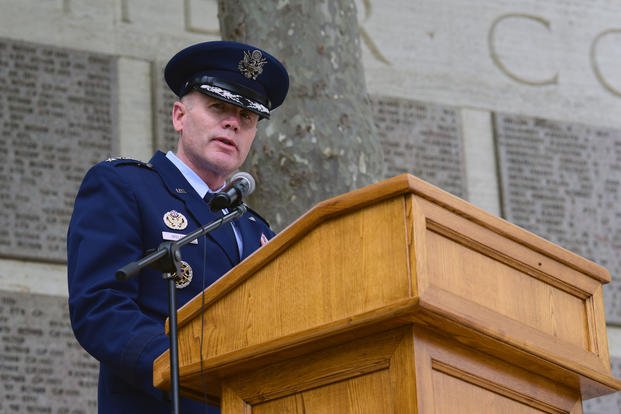Russia has not harassed U.S. ships and aircraft in Europe and the Mediterranean for the past three months in what appears to be an effort to avoid incidents that could escalate into conflict, NATO Supreme Commander Gen. Tod Wolters said Tuesday.
Russian aircraft still shadow U.S. and allied ships and planes, but "we have had zero unprofessional incidents at sea and zero unprofessional incidents in the sky" in the last 90 days, he said.
At a breakfast with defense reporters, Wolters attributed the decrease in unsafe operations by the Russians to the "deconfliction dialogue" he had in his first face-to-face meeting with Gen. Valery Gerasimov, chief of the Russian General Staff.
A NATO news release said the Wolters-Gerasimov talks took place in July in Baku, Azerbaijan.
Related: Russian Jet Buzzes US Recon Plane Repeatedly in Mediterranean, US Navy Says
Incidents in which Russian aircraft flew low over U.S. warships or made dangerous passes at American aircraft were "a key military topic in my consultations with Gen. Gerasimov," said Wolters, an Air Force general who doubles as head of U.S. European Command.
"He was concerned about it; I was concerned about it," he said, adding that the result of their talks was "zero unprofessional behavior that occurs in the maritime or in the air."
"The safety deconfliction has improved," Wolters said. "That's because we're deterring better, that's because we're deconflicting better" with upgrades to intelligence and surveillance assets.
Wolters, who succeeded Army Gen. Curtis M. Scaparrotti in May as head of the 29-nation NATO alliance, has previously said that some of the unsafe incidents could be attributed to "hotdogging" by Russian pilots.
One of the closest calls for a U.S. warship occurred in 2016 as the destroyer Donald Cook patrolled in the Baltic Sea. A EUCOM video showed several Russian fighters making extremely low passes over the Cook. The incident can be seen here.
At a June forum of the German Marshall Fund in Belgium, Wolters said there had been thousands of intercepts between NATO and Russian aircraft over the years, but most were routine and the number of unsafe and unprofessional incidents had been decreasing.
"What I can assure this audience is that well over 99% of the intercepts that occur in the air are actually safe," he said at the forum. "In many of the cases where they're unsafe, when you take a look at the experience level of the operators that were involved, it typically turns into a young man or woman that was probably just hotdogging it a little bit more than they should."
-- Richard Sisk can be reached at Richard.Sisk@Military.com.
Read more: Here's How US Space Force Will Be Built












